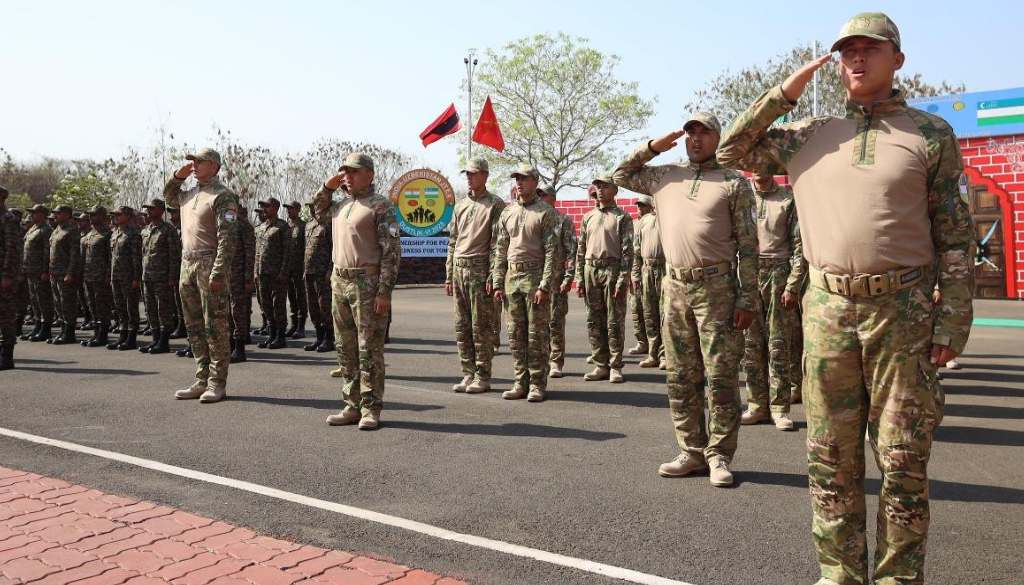India-Uzbekistan Military Exercise DUSTLIK-VI Begins in Pune with Focus on Counterterrorism Operations

Pune, 16th April 2025: The sixth edition of the joint military exercise between India and Uzbekistan, titled DUSTLIK-VI, kicked off today at the Foreign Training Node in Aundh, Pune. The exercise will run until 28 April 2025, bringing together forces from both countries to enhance tactical coordination and counterterrorism capabilities in semi-urban scenarios.
A 60-member Indian contingent from the JAT Regiment, supported by the Indian Air Force (IAF), is participating alongside troops from the Uzbekistan Army. This annual bilateral exercise is conducted alternately in India and Uzbekistan. The previous edition took place in the Termez district of Uzbekistan in April 2024.
This year’s exercise focuses on joint multi-domain operations aimed at neutralizing terrorist threats in a semi-urban setting. The drills will simulate a scenario involving the capture of specific territory by hostile forces, requiring a coordinated response including:
Setting up a Joint Operations Centre at the battalion level
Conducting population control missions and search-and-destroy raids
Executing air-supported assaults using IAF assets
Securing helipads for launching further operations
Deploying drones and implementing anti-drone strategies
Running special heliborne missions for reconnaissance, insertion, and extraction of teams

Special forces from both the Indian Army and Air Force will demonstrate interoperability by jointly conducting these high-stakes operations, focusing on rapid deployment and coordination in hostile environments.
The objective of DUSTLIK-VI is to foster tactical synergy, mutual learning, and stronger military ties between India and Uzbekistan. The initiative is also expected to bolster defence cooperation, improving preparedness for counter-insurgency and sub-conventional warfare operations.
Officials from both nations emphasized that such exercises play a crucial role in building mutual trust and operational familiarity, which are vital in today’s evolving security landscape.







